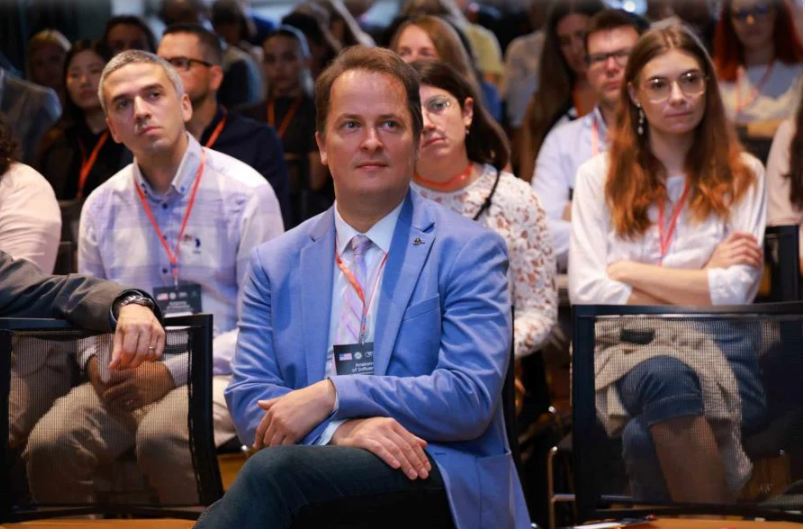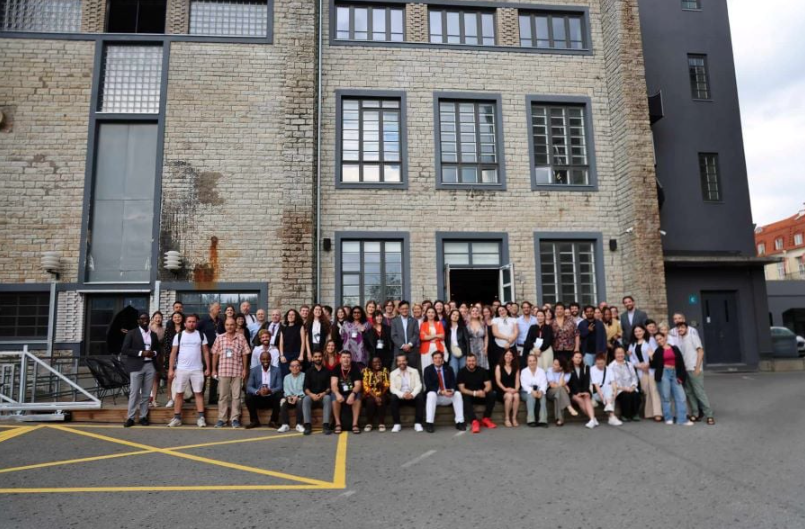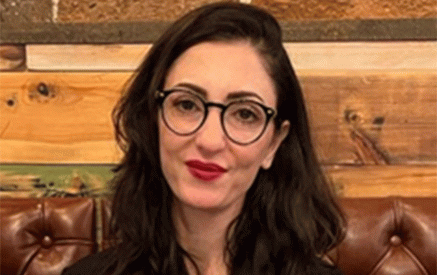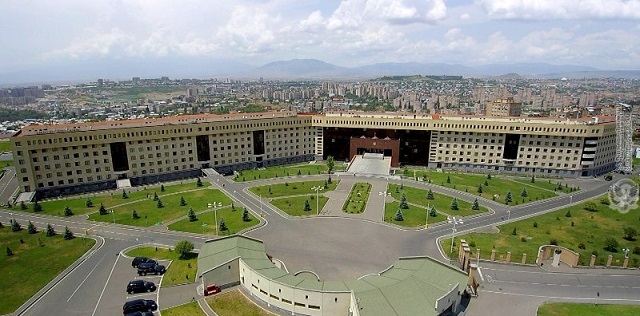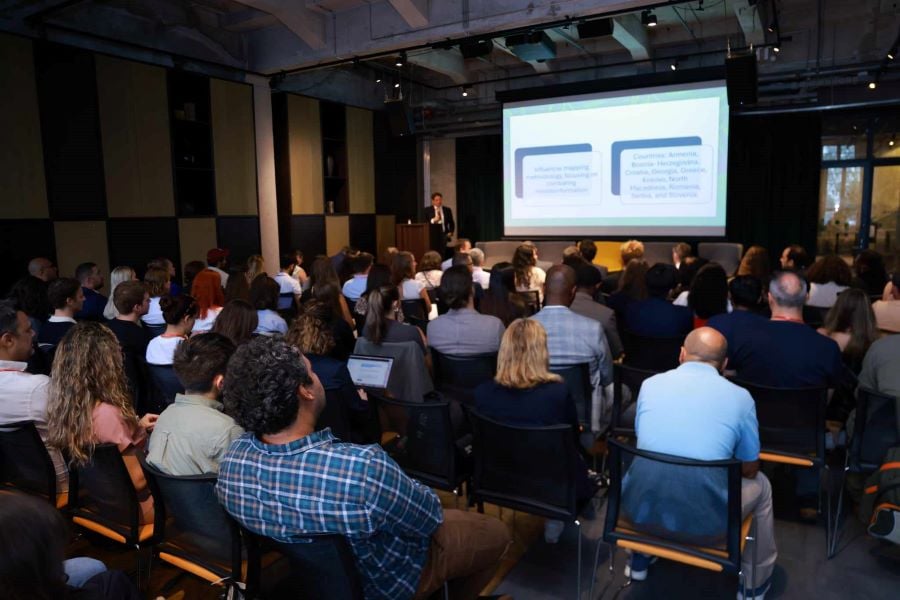In the digital age, when images, sounds, and even emotions can be spread around the world in seconds, when borders are erased for expressions of human contact, and it is not at all difficult to send a confession of love from Zimbabwe to the United States or a hate speech from Japan to Norway, when you can sit in Mongolia and listen to a Harvard University professor, or watch live tennis matches in Australia from Argentina and share your impressions in “chats” that do not recognize nation or religion, it is impossible not to think about the possible ways of development of this new world and their construction.
From July 23-25, in Tallinn, the capital of Estonia, the “Anatomy of Influence: Unveiling Global Impact in the Digital Era” hybrid forum was held, organized by DCN (Digital Communication Network) Global and World Learning with the support of the US State Department.
Almost 120 people from all over the world participated in the forum in person, and thousands more joined virtually from various locations.
Read also
What is needed to influence people today? Just a mobile phone and the Internet! Who influences people and how? What evolution has the field of influence gone through? How do we resist unnecessary influences, and what restrictions should be set so that hate speech does not prevail in the Internet domain? How do we avoid totalitarian influences? How do we stay informed and not be deceived? These and many other interesting and urgent questions were addressed by dozens of authoritative speakers participating in the forum.
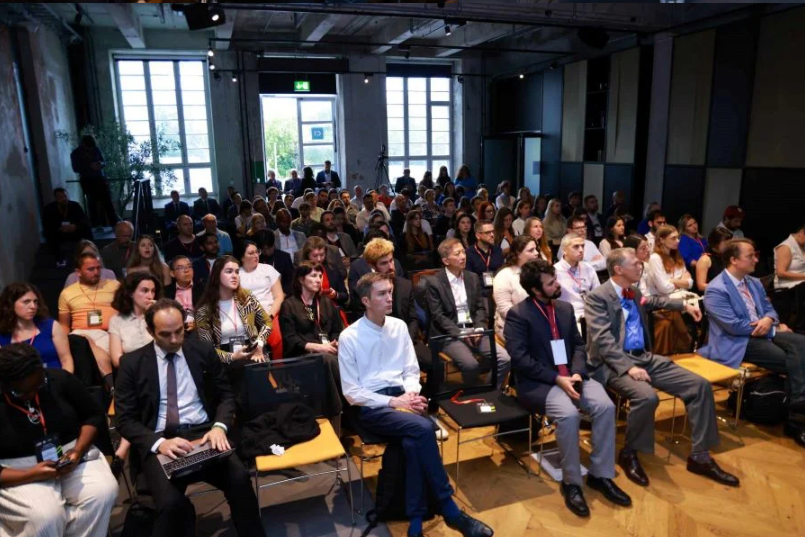
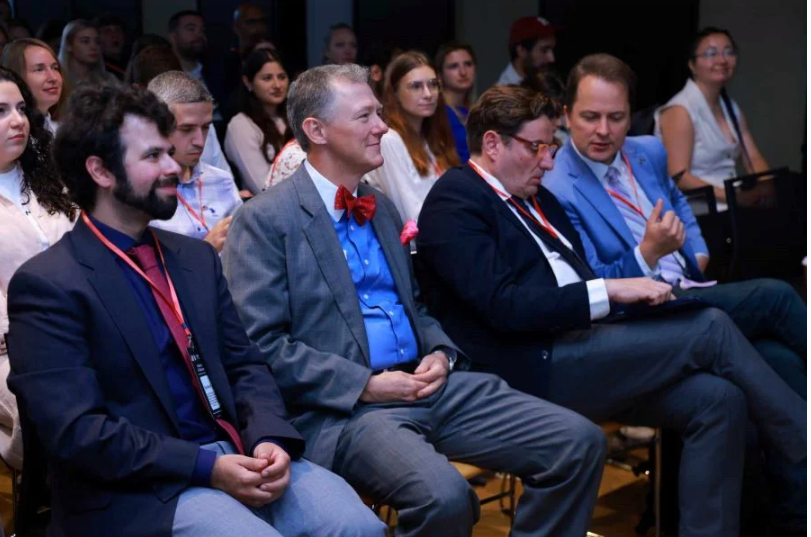
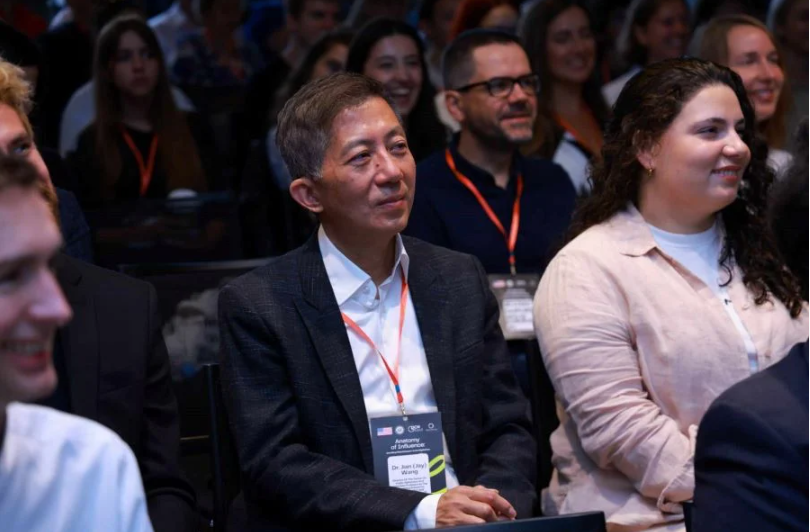
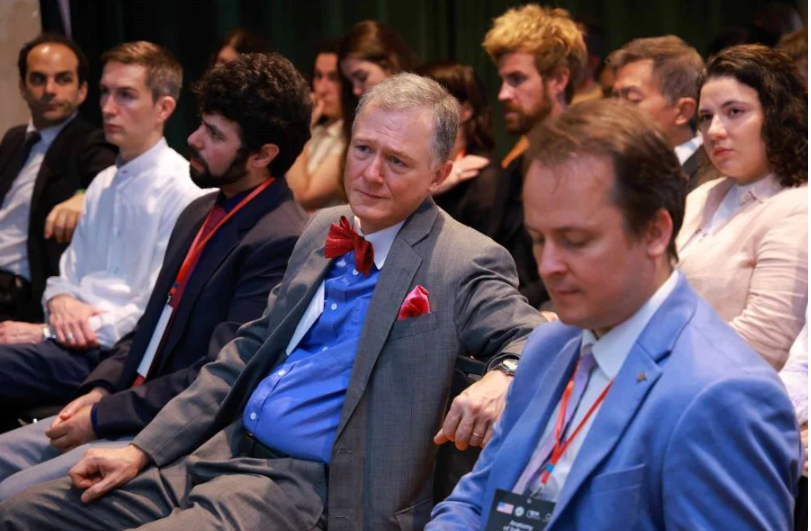
During the two working days of the three-day forum, many interesting thoughts and ideas were shared. It is naturally impossible to present them all in one article, so for those who are most interested, here are the links to the videos of the two days of the forum:
[Day 1]
[Day 2]
However, we will touch on some interesting points both in this article and in the future.
Franak Viacorka (in the main photo), chief political adviser to the leader of “Democratic Belarus” Svetlana Tikhanovskaya and vice-president of DCN, journalist, and media analyst, first reminded us of the important role digital technologies and digital tools have played.
“We in Belarus have been fighting against the bad guy for 30 years (referring to the unchanging leader of Belarus, Lukashenko), and Skype and then many other technologies became our only tools to change the situation. In 2020 Telegram played a very significant role in uniting people but also in mobilizing the protest. Without these technologies, which, by the way, were not created to organize protests, freedom fighters can’t manage. These tools help make dictators weak. However, after some time, dictators also learned how to use these technologies. Now they are used by dictators to trace opponents, imprison them, and find their connections. Now it’s a competition between dictators and democracy fighters over who will use technologies more efficiently. Dictators have resources and influence, both administrative and on tech companies, but we as freedom fighters, activists, and digital creators have creativity, which usual dictators don’t have, and we have to be very flexible and adaptive to the constantly changing world of technologies.”
He noted that the main goal of dictatorial regimes is to establish their own narratives. He advised attendees to watch the American TV show *Silo* to understand the impact of dictatorial regimes. “People living in bunkers for many years eventually forget why they live there and don’t ask questions. This is what’s happening in dictatorial regimes. Basically, 10-15 years ago when Facebook, Instagram, and then TikTok came, it was impossible to control people by showing them the same narrative through TV because people saw an alternative. It took some time for people to understand that there is another life, another reality. So our goal as freedom fighters, digital creators, and influencers is to not allow regimes and dictators to control the narrative, especially propaganda. Our goal is to engage tech companies, to embrace new technologies and apps as soon as they appear.”
Reminding that dictators have a lot of resources and help each other fight against democrats, Franak Viacorka said it is not possible to fight against regimes alone. “It is impossible to win the war against dictators’ disinformation alone. It requires the combination of knowledge, experiences, and skills that we all share here, in the DCN forum, in this fantastic mixed group of professionals, influencers, content creators, tech companies, journalists, professors, diplomats… We need to work together.”
During the forum, there was also a question about blocking some tools, particularly TikTok, which is a Chinese technological tool and in many cases serves to spread the narratives of China and its allies. Viacorka noted that “the Ukrainians did a great job banning Russian propaganda TV channels and influencers in Ukraine, because this is what Russians are doing in Belarus right now and no one is stopping them. Also, the bans across the EU on different Russian media channels helped a lot to minimize the impact.
However, when we speak about TikTok, it will be hard to ban it, first because stopping technologies is impossible. Then TikTok has a huge audience; we are talking about billions of people using TikTok. So definitely either new technology will come or the Chinese will come with another option. It doesn’t solve the problem of disinformation entirely. The block, the ban, it doesn’t help. We see what happens in Russia, in Iran, in China… people still manage to get access to technologies, no matter how you try to ban it. The question is who uses these tools most efficiently.”
Both China and Russia invest huge funds in the promotion and development of various startups and tools. You can’t block all technologies all the time. It is not a solution to the problem. “We see how Chinese, also other dictators are using the spheres we are not efficient in, like gaming for example. There are many platforms that we always saw as purely for gaming, like Roblox. The platform, which is a huge deal, started 10 years ago, and no one paid attention, but now it’s also billions of people where Russians and Chinese are working sometimes even more efficiently than on TikTok. Since we are distracted by TikTok, we are forgetting about everything else. If we ban it, all problems will not be solved. It doesn’t work like this. When we speak about Russians, they are very diversified, they create many things, they invest in many startups. What we can do is create our own platforms and empower ordinary people.”
He also noted that the problem is that the “bad guys” – Russia, China, Belarus, and other dictatorial regimes – in addition to having the resources and will to spread disinformation, also act without any rules. “They are very efficient because they don’t have rules in their operation, and we as democratic actors work in a democratic environment, we often follow the rules. And it’s impossible to change. What we can do is mobilize more people, more creativity, and we must always be a step ahead.”
Speaking about the fight against disinformation and misinformation, he said, “Ten years ago we were speaking about fact-checking as the main tool to counter disinformation. I think it doesn’t work because fact-checking is always late. When fakes are debunked, usually there is another fake, then another fake appears. However, it doesn’t mean that we shouldn’t do fact-checking, because it’s very important to document fakes and also to follow trends. What we can do and what we must do is create more content. This is what dictators are usually doing, and especially Russians are doing. Instead of having large and powerful distributors of information, they create small and many. And this is the tactic, this is the approach we also should adapt. Another approach that works for them is non-branded content. We often tend to use branded content, especially respected media, thinking it can help, but very often it doesn’t help, but the opposite. I think we shouldn’t be afraid of using non-branded content, especially if we work in restricted environments like Belarus, Russia, or other parts of the world under authoritarian regimes.
When we go to Russian platforms, and we have to go there because this is where the audience is, we just remove their logo like RFE/RL, VoA, or BBC… and the number of views is multiplied 5 to 10 times. I know this is quite difficult for old school traditional outlets, but this is what we must do. And as I mentioned, you should never hesitate to try new platforms and experiment with new spaces. Platforms like Reddit or similar platforms in other parts of the world have much more impact in terms of influence and creating narratives than traditional big news agencies. We often measure what is on the agenda based on the front pages of traditional outlets, but where we should look is platforms and forums like Reddit because this is usually where the conversation starts.”
One of the attendees, liking this observation very much, described it to make it more impressive: if there is some red liquid in the jug, by constantly pouring water, you can change that color little by little until it turns white…
Melania BARSEGHIAN



















































